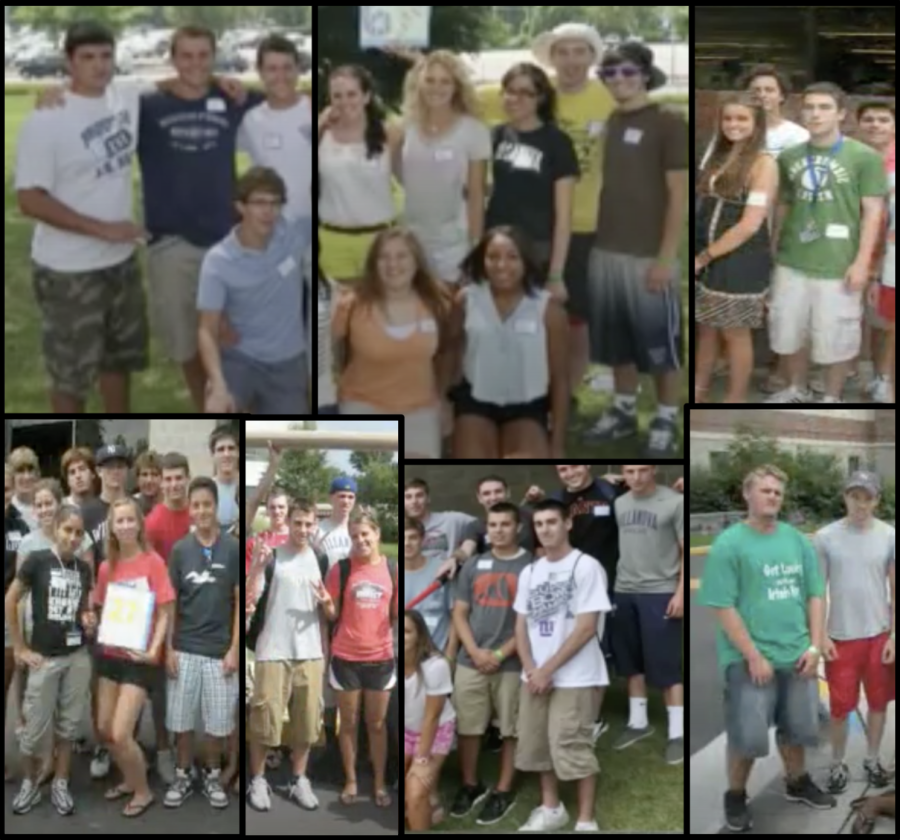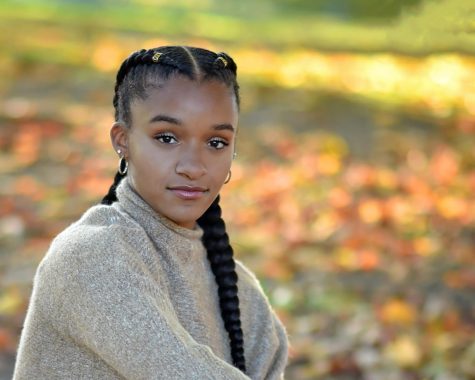Former Orientation Counselors Call for a More Inclusive Program
Courtesy of Villanova Television
Students at Orientation between 2009 and 2012
March 1, 2023
According to its website, “New Student Orientation welcomes students to all aspects of Villanova life including academic, communal, spiritual and social elements of what makes our campus and community unique.”
While many students look back on their orientation fondly, this is not the case for all students.
Sophomore Kentron White did not have a great experience with his orientation his freshman year, so he decided to return to campus early this past summer to be an orientation counselor and to make the experience better than his own for those who look like him. As a queer Black man on a predominantly white campus, White often feels unwelcome or uncomfortable in many spaces on campus, and his orientation experience was one of these situations.
“I put myself in certain spaces where I can be a changemaker,” White said of his motivation to be an orientation counselor.
Junior Marissa Jarmon became involved with the program for similar reasons.
“The most obvious problem I saw was that there were very few orientation counselors of color,” Jarmon said.
While White was hopeful that he could make a change during this year’s program, he quickly began to regret his decision to be an orientation counselor. Several issues with both the administration and other orientation counselors appeared throughout the course of training that made White, and other orientation counselors of color, feel ostracized and excluded.
Something that stuck out to both White and Jarmon was that orientation counselors were forced to attend Mass during training.
“As a steering member, I was forced to go to Mass at least five times, and I’m not even Catholic,” Jarmon said. “Little things like that make it hard for a diverse group of students to want to step forward and do the program… When I personally told people not to go to Mass, [if they did not want to go,] administration was upset with me and [was] not accepting of the changes I wanted to make in order to make the program, as a whole, better.”
Both students believe the university needs to do a better job of catering to a more diverse group of students.
“I’ve noticed this year a lot of the events… never really cater to Black students or students of color, in general,” Jarmon said.
“In regards to activities we had going on, it seemed like everything was catered towards [our] white peers,” White said.
Jarmon also felt that the program as a whole did not focus on the most important issues at hand.
“There was very little focus… on things that actually matter,” Jarmon said. “Instead we set aside time for things like writing songs and making dances. This year, we were all required to do the DEI module that first years were required to do, and there was so much talk about people not wanting to do it because it was stupid or it was too long.”
After dealing with feelings of exclusion, discomfort and frustration throughout the training portion of the program, White, Jarmon and a group of several other Black orientation counselors met with employees from the Office of Student Life to express their concerns and to hopefully suggest some changes that could make the program more inclusive to a diverse group of orientation counselors in the future. While they were receptive during the meeting, White said that nothing that was brought up in the meeting was further addressed with the full group.
“From that meeting, literally nothing that we said [and] nothing that we offered was addressed,” said White. “And that is a problem for me.”
Alicia Dunphy-Culp, the Senior Director of First-Year Experience in the Office of Student Life, has said since meeting with the students that there have been several changes made to the program.
Since then, her department has had several meetings with the DEI and OIA offices to make sure the program is inclusive. They have had listening sessions with students to get feedback on the program, as well as offered an information session specifically for BIPOC students for the first time in an effort to diversify the orientation staff even more. One of the largest areas of focus has been recruiting a more diverse staff.
Dunphy-Culp said they are currently focusing on “reframing [the] selection process on how we can make it a more equitable process for our students.”
Although it was difficult to hear of the negative experiences had by these orientation counselors, Dunphy-Culp and her colleagues are taking this feedback as a chance to make the program better for all students.
“We were disappointed to hear about those student experiences but we felt happy that those students felt they could share with us so we can continue to grow and learn,” Dunphy- Culp said.
Sydney Lobosco, the training manager in the DEI department, spoke about the work between Student Life and DEI regarding the new student orientation program.
“The Orientation Program’s Assistant Director reached out to me in early September 2022 seeking consultation on how the Orientation Program could be more equitable in their processes,” Lobosco said. “Since then, we have collaborated on establishing best practices on equitable hiring and selection processes, provided anti-bias training to Steering members involved in selection, and created structures that allowed each chair team within Steering to consult with a DEI advocate.”
Lobsoco explained how their work on the matter has been done with anti racism and inclusion in mind.
“It was imperative that our work focused on systematic and process-oriented interventions through an intersectional and antiracist lens that will continue to develop the Orientation Program in supporting all students holistically, especially those who have been historically minoritized,” said Lobosco.
Lososco said they understand the frustration that students felt over last summer and hope that their work with Student Life can help to strengthen relationships between orientation staff members of color and administration as well as their white peers.
“When folks feel ostracized, uncomfortable, and frustrated, like the students coming forward are naming, relationships can be strained,” Lobosco said. “Understanding how trust and restoration can be reestablished is an important aspect of sustainable solutions. I look forward to continuing to support the Orientation Program in restoring some of these relationships through transparency, accountability, and consistency of communication.”
One of White’s main problems with the program is that he felt tokenized as a Black orientation counselor.
“They only wanted a person who looked like me there to falsely advertise,” said White. “We preach diversity, we preach inclusiveness, but that’s not what was going on.”
After their experiences, White, Jarmon and their other Black peers involved in New Student Orientation will not be returning to the program. While White appreciates the relationships he was able to build with his orientation group, the stress and frustration that came with dealing with the orientation was too much for him to consider returning.
“What I got out of orientation is what I could do for my students,” White said. “I am here, I am doing this, but I felt unseen, I felt out of place and I felt uncomfortable.”
“I am not returning to orientation this upcoming summer… because of how mentally draining it would be to try to make all these changes,” Jarmon said.
Kathy Byrnes, the Vice President of Student Life, gave a statement to The Villanovan in response to the students who have spoken out regarding their experiences with New Student Orientation.
“I am grateful for the students that came forward to share their concerns with the program and I am sorry that some individuals did not have a positive experience,” Byrnes wrote. “Orientation heard the concerns that were expressed and have taken many steps to respond, including working with the Office of Diversity, Equity, and Inclusion to implement change from a diversity, equity and inclusion lens with a focus on the selection process, potential bias, training and the intense August schedule. Some of the new practices include hosting an informational night for students of color and additional DEI training for Orientation steering committee members. These updates are already in process and happening now. Orientation is a foundational program with the goal of welcoming new students through an inclusive and enthusiastic program. We are committed to this goal and work each year to continually improve and evolve so that every student will know that they are a valued member of the Villanova community.”




Dick Wack • Mar 3, 2023 at 7:17 am
Are they aware they attend a Catholic university?